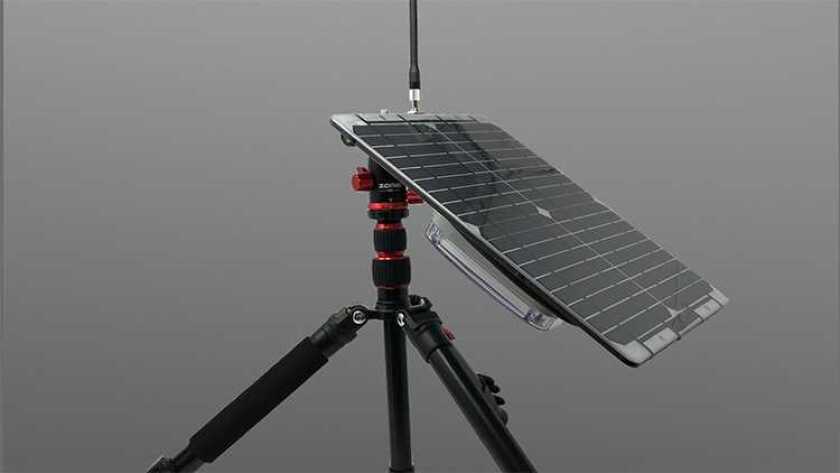The company is selling the solar-powered terminal (pictured) for US$499 from today. Users need to add a $60 a year subscription for data access to the company’s 120 small satellites that are already in service.
Ben Longmier, co-founder and CTO of the company, told Capacity that the eval kit, as Swarm calls it, can be used as a GPS tracker: it sends out signals at the rate of one an hour, he said.
“We wanted something that is totally turnkey. Open the box, hit the on-switch, put it outside and its working,” he said. “There’s even a tripod so it doesn’t sit in the dirt.”
Users “can connect a phone or a tablet and send one-way emails” from anywhere in the world, said Longmier.
Swarm is already recruiting customers, he added. “One company is already putting it on sailboats.” It wants to know where the people who rent out the boats take them.
“A second application is to track illegal forestry”, with a connected device detecting the sounds of a chainsaw.
Swarm will continue to sell its satellite terminals, which it calls tiles, that need to be connected to external systems but customers “have been rattling our cages” for an out-of-the-box unit, said Longmier.
Like the tiles and the nano-satellites, “we make them ourselves” in the company’s headquarters close to Silicon Valley, he said.
That enables it to design changes and implement them within an hour. “We were seeing lead times of six months” from external suppliers, he said.
Swarm will sell the new eval kit to individual users, Longmier told Capacity. “People such as backpackers and sailboat people. But we’re also talking to larger customers.”
Earlier this year co-founder and CEO Sara Spangelo told Capacity that Swarm plans that everywhere on Earth “will have three satellites overhead at all times”,






